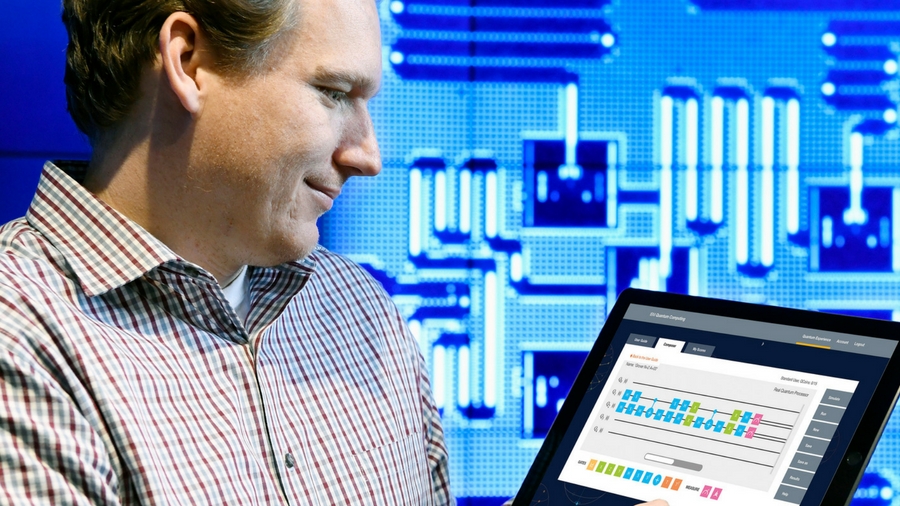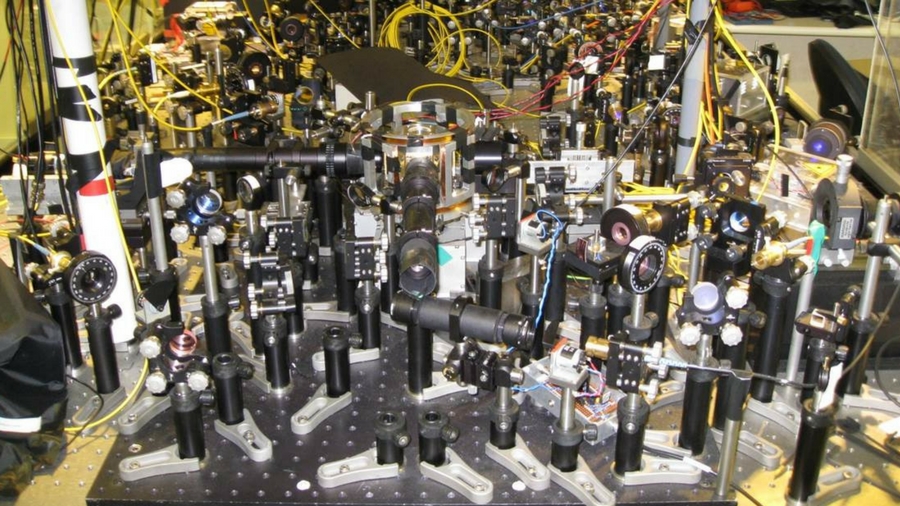How do we create a Quantum Internet?
It's all just ones and zeros. Except when it's both
How would a quantum internet work?
Simple – you create a quantum network to link up quantum computers, and make them available in the cloud. Quantum networks use photons – single light particles – to transmit information between quantum nodes.
"A quantum network would basically work similarly to a classical fibre network, but instead of using strong optical signals, the signal is carried by a single photon," explains Dr Matthias Keller, Senior Lecturer in Atomic, Molecular and Optical Physics at the University of Sussex in the UK.
Transferring quantum data
Encoding information into single photons has its drawbacks because quantum states are very fragile. If just one photon is lost, all quantum data is lost. The main issue is the interface between the qubit and the photon – the information and its mode of transport – which is what Keller's research team is working on.
By trapping atomic ions as qubits in optical cavities – which have two mirrors – and exciting them with laser ions, the ions only transmit light in the direction of the mirrors. "We use this 'Purcell effect' to transfer the quantum information from the ion to the photon," says Keller. "Due to the finite transmission of the mirrors, the photon leaks out and can be coupled into optical fibres for transmission," he adds.
That's to get the data ready to send. The receiver reverses the process to extract it. "It's currently the most successful system for quantum computing," says Keller.

What is quantum cryptography?
Although quantum computers are expected to complement the regular internet for some time, with such advanced computers in the wild, classical encryption techniques used by conventional computers (usually calculations based on sets of prime numbers) will become next to useless. They'll be unravelled in seconds.
"Quantum computers will be able to crack the most commonly used encryption protocol today, which will make the internet as we know it, totally unusable," says Cheng, whose company Post-Quantum develops cryptographic algorithms that are thought to be secure against an attack by a quantum computer. In a post-quantum world, criminals and hackers won't bother with phishing and device weakening to gain access to systems and data.
Sign up to the TechRadar Pro newsletter to get all the top news, opinion, features and guidance your business needs to succeed!
Brute force
"They could openly transport a bulldozer to your front door and start brute forcing your door lock," says Cheng, employing an analogy about barefaced computer hacking. "Putting more locks on the door will not help and there is nothing you can do about it … it will destroy the trust that we have in current communication channels and data repositories."
Cheng insists we need quantum safe identity authentication as part of any future internet, so we know who we're communicating with as well as whether the communication channel itself is safe. "We will also need to ensure non-repudiation of any transactions agreed by the two parties," he adds. "Unless you have a post-quantum secure and immutable record keeping process in place, you will still have a trust issue even if you have addressed the encryption issue."

Will we see a quantum internet?
Yes, but don't expect regular computers to disappear. "Most likely, a future quantum network implementation would be a hybrid network consisting of classical and quantum channels," says Keller. Due to their size and cost, quantum computers will typically operate in the cloud – that's the most efficient way – but it's likely that we will all be able to connect via the normal internet to these machines for specific reasons. To make massive calculations, yes, but also to make secure transactions or send information securely.
Only those who have a refrigerator that reaches absolute zero can contemplate an era of quantum computing at home, but quantum computing does look set to become part of the cloud, and a portion of the internet accessible by all will become quantum in nature.
After treading water for several decades and leaning heavily on Moore's Law, the tech industry is finally coming round to embracing the quantum reality, but it comes with a cryptographic kicker – the internet will need to be completely reinvented.
- Also check out: Beyond silicon: We discover the processors of your future tech
Jamie is a freelance tech, travel and space journalist based in the UK. He’s been writing regularly for Techradar since it was launched in 2008 and also writes regularly for Forbes, The Telegraph, the South China Morning Post, Sky & Telescope and the Sky At Night magazine as well as other Future titles T3, Digital Camera World, All About Space and Space.com. He also edits two of his own websites, TravGear.com and WhenIsTheNextEclipse.com that reflect his obsession with travel gear and solar eclipse travel. He is the author of A Stargazing Program For Beginners (Springer, 2015),
